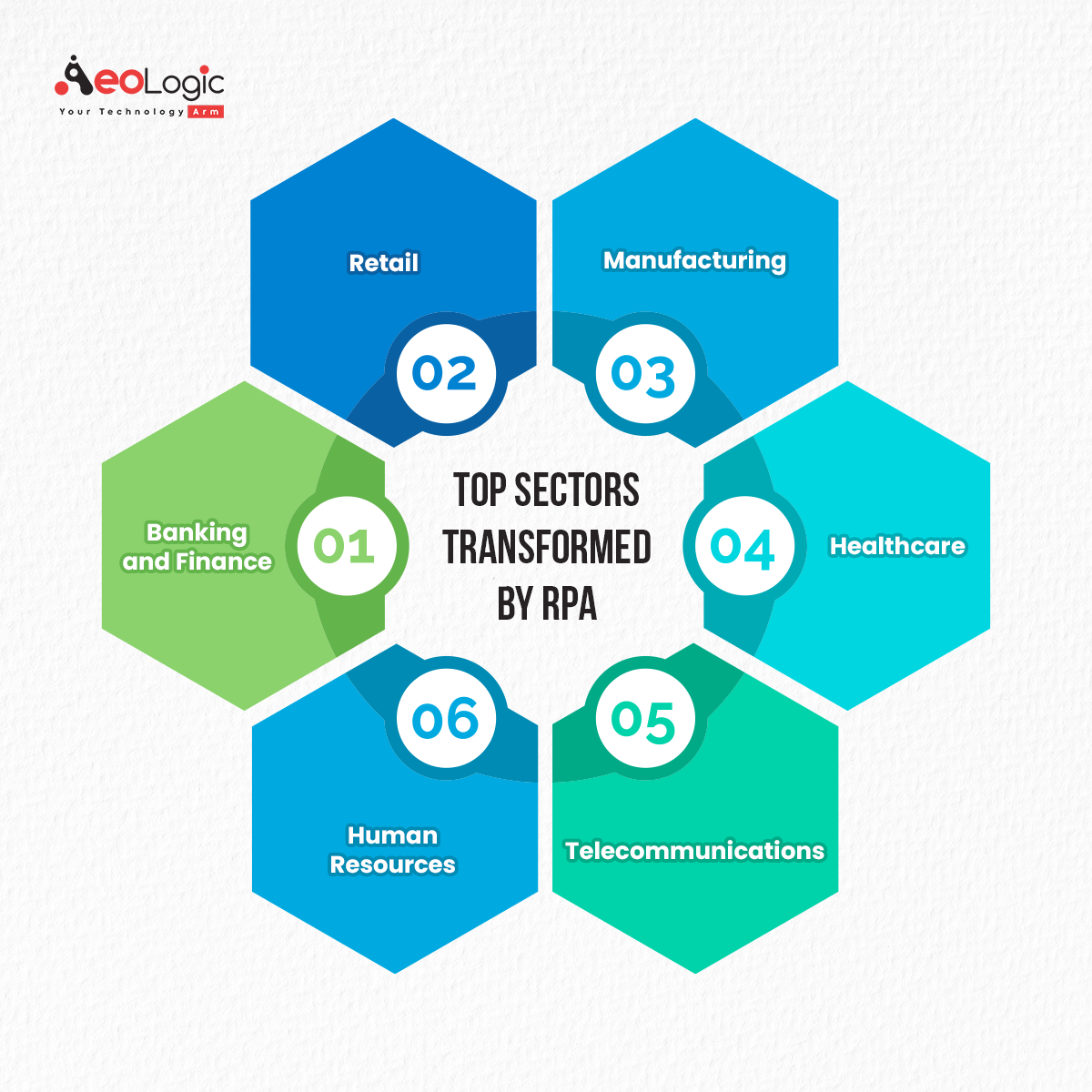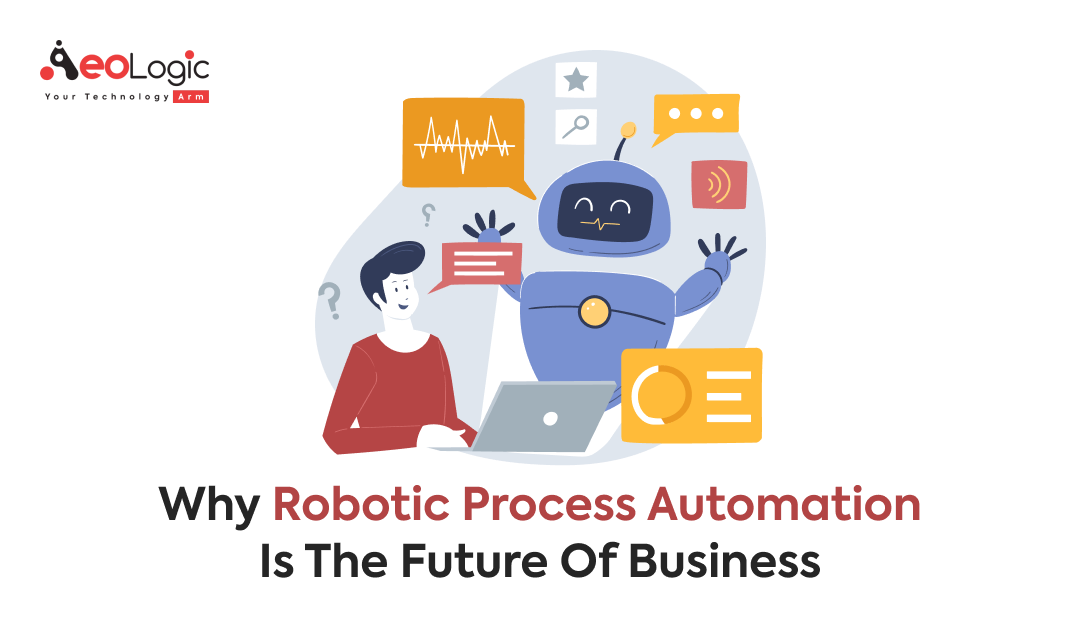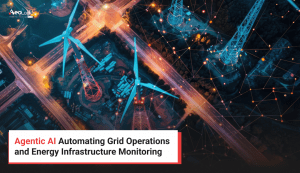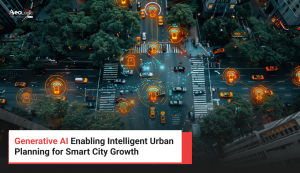In today’s fast-paced world, businesses are constantly seeking ways to stay ahead. That’s where the future of robotic process automation (RPA) comes in. RPA is not just a fleeting trend; it’s a game changer in how businesses operate. I’m here to walk you through why embracing RPA is like holding the key to a more efficient, cost-effective, and innovative future.
What is Robotic Process Automation?
Before we dive into the heart of the matter, let’s clarify what we mean by RPA. Robotic Process Automation is a technology that allows businesses to automate routine tasks that were previously done manually. It uses software robots, or “bots,” to mimic and integrate human actions within digital systems. Think of RPA as a diligent, tireless employee that works 24/7 without breaks.
The Rise of RPA: A Snapshot
- Increased Adoption: According to a Deloitte report, 53% of respondents have started their RPA journey, and this is expected to increase to 72% in the next two years.
- Cost Savings: A McKinsey study found that RPA can lead to a cost reduction of up to 30%.
- Accuracy and Efficiency: RPA can reduce transaction processing times by up to 50%.
Also Read: How RPAs Are Used for Business Automation
Why RPA is the Future of Business
Embracing RPA isn’t just about keeping up with trends; it’s about being a step ahead in the competitive business world. Let’s explore how RPA is not just shaping the present but is a pivotal force in defining the future of business operations.
1. Streamlining Operations
The future of robotic process automation lies in its ability to streamline operations. RPA can handle tasks like data entry, invoice processing, and customer service queries, thereby enhancing productivity and operational efficiency. This not only speeds up processes but also frees up your staff to focus on more strategic tasks, fostering an environment of innovation and strategic thinking. (https://vulcanpost.com)
2. Enhancing Accuracy and Compliance
Human error is inevitable, but RPA minimizes this risk significantly. These bots follow precise instructions, ensuring high accuracy in tasks like financial reporting or data reconciliation. This leads to improved data quality and reliability in business operations. Moreover, compliance becomes easier as RPA can adhere to regulatory requirements without fail, thus reducing the risk of costly compliance violations.
3. Cost Efficiency
One of the most compelling reasons RPA is the future of business is its cost-effectiveness. By automating routine tasks, companies can reduce labor costs and minimize the expenses related to human errors. This leads to significant savings and a more robust bottom line. This, in turn, boosts the overall profitability of the business, allowing resources to be allocated to more strategic initiatives.
4. Scalability and Flexibility
RPA allows businesses to scale operations quickly and efficiently. Bots can be deployed or reconfigured with relative ease to meet changing business needs, making them a flexible tool in the arsenal of any growth-oriented business. This adaptability is crucial in rapidly changing market conditions, ensuring businesses can pivot as needed without major disruptions. Furthermore, RPA’s scalability ensures that it can grow in tandem with the business, providing support at every stage of expansion.
Checkout our Trending Blog: Top 10 Guidelines for Efficient Robotic Process Automation
5. Boosting Customer Experience
In the digital age, customer experience is paramount, and RPA plays a crucial role in enhancing it. By automating customer service processes, businesses can ensure faster response times and more accurate information delivery. RPA can handle routine inquiries, allowing human customer service representatives to tackle more complex issues, thus improving overall customer satisfaction.
The future of robotic process automation includes not just back-office efficiencies but also front-line customer engagement improvements. With bots handling repetitive tasks, businesses can focus on creating more personalized and engaging customer experiences.
How RPA is Transforming Industries
In every sector, from finance to healthcare, the impact of Robotic Process Automation is profound and transformative. Let’s explore how this technology is not just changing but revolutionizing the way industries operate, making the future of robotic process automation an integral part of their growth and evolution.
Banking and Finance
In banking, RPA is revolutionizing how transactions are processed, how compliance is maintained, and how customer service is delivered. For instance, JP Morgan Chase’s COIN program uses RPA to automate the interpretation of commercial-loan agreements, a task that previously consumed 360,000 lawyer hours annually. RPA also significantly reduces the risk of fraud and errors in transactions, enhancing the security and reliability of banking operations. Furthermore, it improves customer experience by enabling faster and more accurate service delivery.

Healthcare
The healthcare sector benefits greatly from RPA by automating patient scheduling, billing, and record keeping. This not only enhances operational efficiency but also improves patient care by reducing wait times and administrative errors. RPA also plays a crucial role in managing patient data, ensuring its accuracy and confidentiality. Additionally, it assists in regulatory compliance, helping healthcare providers adhere to stringent industry standards and practices.
Retail
In retail, RPA helps in inventory management, order processing, and customer relationship management. By automating these tasks, retailers can offer a more personalized shopping experience to their customers. This technology also assists in analyzing customer behavior and preferences, enabling retailers to tailor their offerings and marketing strategies. RPA in retail further helps in streamlining the supply chain, ensuring that products are stocked efficiently and customer demands are met promptly.
Manufacturing
In manufacturing, RPA streamlines supply chain operations, inventory management, and quality control processes. This automation leads to increased production efficiency, reduced operational costs, and a more agile response to market demands. It also enhances safety in manufacturing environments by taking over repetitive and potentially hazardous tasks, thereby reducing workplace accidents. Moreover, RPA enables real-time monitoring and analysis of production processes, leading to continuous improvement and innovation.
Telecommunications
For telecommunications companies, RPA automates processes like customer service, data management, and billing. This leads to improved customer satisfaction through quicker response times and more accurate billing processes. RPA also assists in network management and optimization, ensuring that telecom services are delivered efficiently and with minimal downtime. Furthermore, it helps in analyzing large volumes of data, enabling telecom companies to make data-driven decisions for service improvement and expansion.
Human Resources
In HR, RPA transforms various functions such as payroll processing, employee onboarding, and benefits management. This not only speeds up HR processes but also ensures accuracy and compliance with labor laws. It also enhances the employee experience by streamlining recruitment and onboarding processes, making them more efficient and welcoming. Additionally, RPA enables better management of employee data and records, ensuring that HR departments can focus more on strategic initiatives and employee engagement.
Also Read: How Robotic Process Automation Can Contribute To Retail Growth
The Future of Robotic Process Automation
As we look to the future, the potential of RPA is boundless. We’re talking about advanced integration with AI and machine learning, creating even smarter bots capable of handling complex decision-making processes. The future of robotic process automation will see bots that can learn from their experiences, adapt to new scenarios, and work alongside humans in more collaborative ways.
As we look to the future, the potential of RPA is vast and varied. Here are four key developments we can anticipate:
Integration with AI and Machine Learning: The next phase of RPA involves deeper integration with artificial intelligence (AI) and machine learning. This means bots will not only automate tasks but also learn from data patterns, making intelligent decisions and adapting to new situations without human intervention.
Advanced Analytics Capabilities: Future RPA tools are expected to offer advanced analytics features, providing businesses with deeper insights into their operations. This will enable more strategic decision-making based on real-time data analysis.
Enhanced Customer Interaction: RPA will evolve to handle more complex customer service interactions, using natural language processing to understand and respond to customer inquiries in a more human-like manner. This could revolutionize customer service, making it more efficient and personalized.
Collaborative Robots (Cobots): The future of robotic process automation will likely see the rise of ‘cobots’, or collaborative robots, that work alongside humans in a shared workspace. These cobots will be more intuitive and capable of performing a range of tasks that complement human skills, leading to a more productive and harmonious workplace.
Also Read: Robotic Process Automation (RPA) in the Banking Industry
Final Words
The future of robotic process automation is not just an abstract concept; it’s a tangible, impactful tool that is reshaping the business landscape. As you consider the future of your business, think about how RPA can play a role in enhancing your efficiency, accuracy, and overall competitiveness. The future is automated, and the time to embrace it is now.
For a future aligned with innovative automation and success, connect with Aeologic Technologies to harness the transformative power of robotic process automation.










